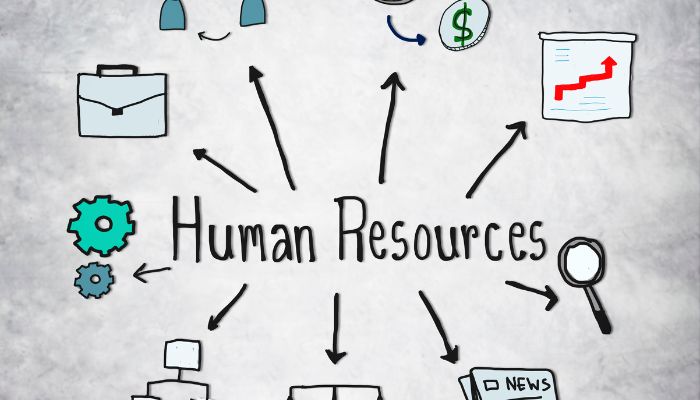The Importance of Occupational Safety
Occupational safety is a big concern in functioning workplaces. It can determine the well-being of an employee either physically or mentally. Employers have the duty to ensure the safety of their employees. Occupational safety entails the requirement to avoid any harm or injury happening to the employees during the course of performing their duties.
Challenges Faced by Indian Organisations in Occupational Safety
On World Day for Safety and Health at Work, here’s a preview on occupational safety and some of the challenges faced by Indian organisations. One of the most important things to do first is to find ways to leverage tools and best practices in order to deter hazards that could potentially lead to downfall of employees’ safety and wellbeing.
Work Environment and Technology
With the advent of technology, use of machines, and new architecture, there has been evident change in the working environment. Employees not equipped with means to adapt to these changes can pose a threat to themselves and their colleagues in the workplace.
Demographics and Safety Challenges
The ageing employees are yet to fully equip themselves with the changing and ever-advancing technology, which can result in some hazard as far as occupational safety is concerned. On the other hand, organisations are hiring younger and less experienced employees who are not equipped with the latest technology and safety standards. They have to be taught about the practical aspect of work processes in an industrial setting. Although they are usually fast learners, the newcomers face a challenge in keeping the equilibrium of occupational safety intact.
Economic Unpredictability and Safety Concerns
India has witnessed two lockdowns due to the pandemic and many restrictions. Due to this factor, the organisations are not able to make concrete decisions and reforms that could transform the organisation’s safety culture with regard to occupational safety at work.
The Need for Skilling and Upskilling
For occupational safety, skilling and upskilling of the employees appropriately to operate effectively in the workplace is of utmost importance. This can be achieved through making the safety culture embedded in a people-centric environment. In the short and long term, this can also result in employee productivity and employee retention.
Ergonomics in the Workplace
Organisations need to be responsible for teaching and training the employees to practise safe ergonomic hygiene in their workplace. This can include basic tasks like lifting, sitting, and moving safely for oneself and for others. According to a report by the American OSHA, 34% of workplace injuries are due to poor ergonomics. Training the employees in this matter will ensure occupational safety to a large extent. Simple things lead to big changes.
Environmental Safety Skills
Environmental safety skills include things such as material storage and disposal, electrical safety, and general office safety hygiene. If not taken care of, this can prove to be a serious risk in the workplace. Organisations should train the employees in their tasks so that they understand the consequences of them and how best to keep a safety culture intact.
Equipment Safety and Technological Advances
With the advancement of technology, machines and equipment have become a daily and normal thing for an organisation’s advancement in this field. The organisation should cover training so that the employees can operate the advanced machines and equipment with ease and confidence, so that it minimises chances of a hazard, and to promote occupational safety.
Cybersecurity and Occupational Safety
Cybersecurity is very important when it comes to occupational safety. With the rise in the work-from-home model of working since the inception of the pandemic, employees have largely been working from home. As convenient as it might be, we need to be weary of the threats of a cyberattack that could lead to leaks of important material. This can impact the wellbeing of the employees as well as the organisation concerned, and also lead to less productivity. Therefore, extra measures need to be taken in the cybersecurity front.
Mental Health and Occupational Safety
Mental health is a priority for anyone’s wellbeing. When an employee is fatigued, stressed, or burnt out, it can lead to accidents and mishaps. There must be resources and regular check-ins to ensure that the employees’ mental wellbeing is kept in check, so that occupational safety also remains in check.
Steps to Maximise Occupational Safety
Occupational safety is of utmost importance in a workplace, and organisations and governments can take steps to maximise its effect for the wellbeing of everyone in the various industries. Some ways that could prove to be beneficial for occupational safety are:
- To develop comprehensive safety programs and training sessions that would cover all aspects of safety protocols and procedures.
- To communicate safety policies and procedures clearly and regularly to employees.
- To establish workplace violence prevention policies and procedures.
- To monitor employee fatigue and burnout to implement strategies to reduce it, such as adjusting work schedules or providing rest breaks.
Conclusion: A Proactive Approach to Safety
In conclusion, occupational safety is important and achievable with the right steps. The challenges are real and they require a proactive approach from the employers in communicating and training the employees, while it is the employees’ duty to cooperate for their own wellbeing. By understanding the challenges and solutioning accordingly, there would be better occupational safety in the workplaces – something that needs to be a standard goal.
Reference: The Economic Times, Workplace safety challenges: How safe are your workers? (March 7, 2022)






